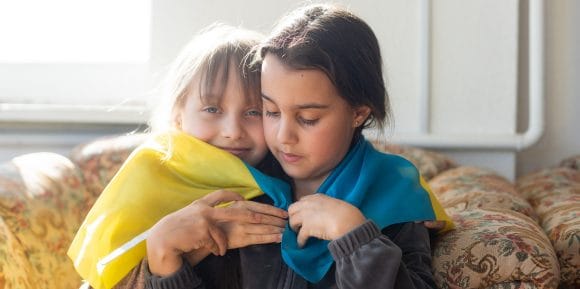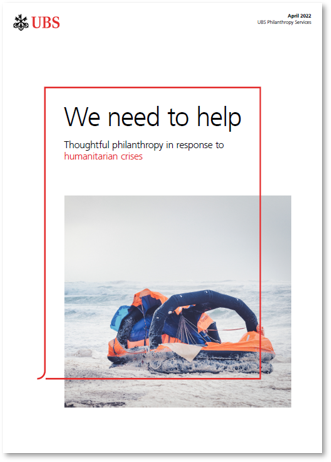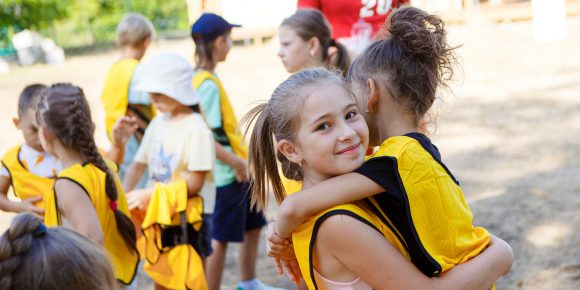
The war in Ukraine is still raging, with devastating consequences for the civilian population. The longer the war continues, the medium- and longer-term needs will grow as the Ukrainian people seek to rebuild their lives and their country with sustained support from the humanitarian and international community.
We want to continue to helping the most vulnerable Ukrainians to get through this winter and beyond, but also begin looking ahead to support medium to long-term sustainable recovery initiatives.
Fund continues to raise donations
Fund continues to raise donations
Our UBS Optimus Foundation continues to collect donations to distribute to effective relief and recovery initiatives via our vetted partner organizations on the ground.
We are matching all donations to the UBS Ukraine Relief Fund by 10%. That means that together as an international community, we can continue to create an impact to help the most vulnerable communities and people.
Recognition
Recognition
We are very proud to share that our work with the Ukraine Relief Fund was recognized by the Money Management Institute / Barron’s Industry Awards 2022. Now in its 14th year, the awards recognize innovation and leadership in the investment advisory solutions industry.
What has been done so far?
What has been done so far?
The Ukraine Relief Fund has so far mobilized USD 62.6 million thanks to the generosity of more than 10,000 clients and 12,000 employees, including the help of our matching partner XTX Markets. Your support is helping people access emergency support like survival supplies, and healthcare. We’re currently working with local partners to support families and communities rebuild while continuing our strategy to provide mental health support and education as well as protecting vulnerable children and their caregivers.
USD 57.1 million has already been committed for relief and recovery efforts and the rest will go to longer term recovery and resilience programs. UBS Optimus Foundation network is focused on supporting grassroots organizations directly or through intermediaries where possible, 25 and counting, to ensure as much funding as possible is reaching local Ukrainian organizations that have been working in their communities for some time and will continue to do so.
Learn more
Learn more
about our support and the work of two of our partners, Teach for Ukraine and NGO Girls, through the Monocle podcast “Ukraine Relief Fund – one year on”.
With a gift to the UBS Optimus Foundation Ukraine Relief Fund, you could support thousands of people in immediate need. And to maximize your impact, UBS will add 10% to employee and client donations.
With a gift to the UBS Optimus Foundation Ukraine Relief Fund, you could support thousands of people in immediate need. And to maximize your impact, UBS will add 10% to employee and client donations.
Our aim is to:
- Mobilize emergency support for Ukrainian families, such as economic assistance, survival supplies, and protection services for civilians who have been forced to flee their homes.
- Provide health-focused humanitarian aid for Ukrainians both inside Ukraine and those taking refuge in neighboring countries by sourcing and distributing critically needed medicine, deploying emergency medical teams and support access to basic mental health services.
- Protect vulnerable children and their caregivers in Ukraine trapped in orphanages to provide emergency food, hygiene and medical kits and supporting the evacuation of children, particularly those with physical or mental disabilities.

How to give during a humanitarian crisis
How to give during a humanitarian crisis
To learn more from our experts about how to react thoughtfully and effectively with your philanthropy through the giving cycles of humanitarian crises, download the full guide.
In times of need, one of the most effective ways of giving for maximum impact is collectively. Would you like to connect and exchange with other philanthropists and changemakers? If so, ask your client advisor about joining our Global Philanthropists Community.
Learn more about emergency philanthropy and UBS:
More questions?
More questions?
Please get in touch!
Ask your UBS Client or Financial Advisor or send us an email choosing your local UBS Optimus Foundation representative office


